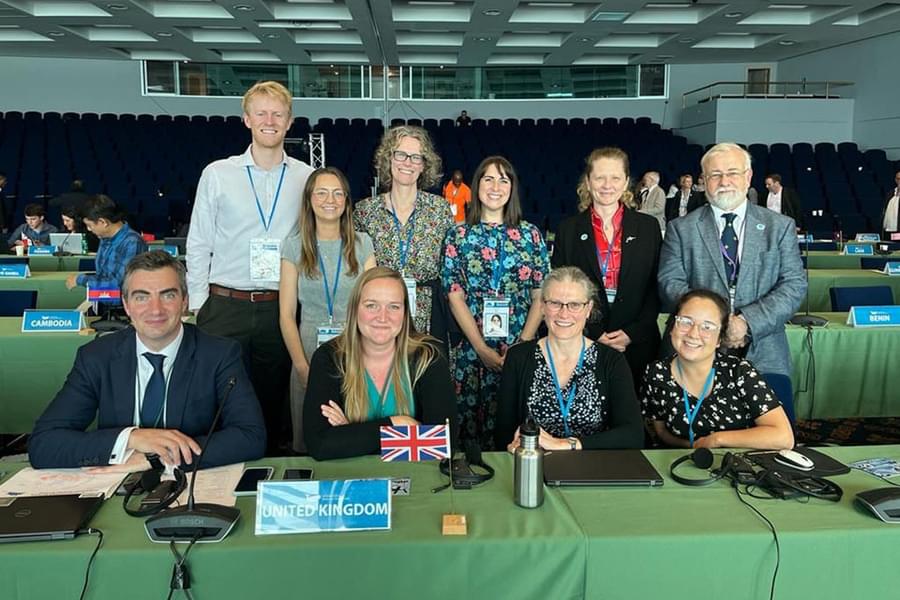Last week, ORCA’s Head of Science and Conservation, Lucy Babey, attended the International Whaling Commission (IWC) IWC68 in Slovenia as part of the UK Delegation. Lucy was representing the NGO community and was working to achieve global protection for whales, dolphins and porpoises.
The IWC was established in 1946 to ‘provide for the proper conservation of whale stock and thus make possible the orderly development of the whaling industry’. The UK has had a long-standing opposition to commercial whaling and, as a founding member, has supported the IWC over the last 75 years. The UK continues to call on whaling nations to stop this activity in favour of well-managed, responsible whale watching.
Today the IWC has 52 member states, including whaling countries, ex-whaling countries and countries that have never had a whaling industry but joined either to have a voice in the conservation of whales or to support whaling interests. The IWC meets annually and adopts regulations on catch limits, whaling methods and protected areas. In recent years, they have begun recognising other threats to whales and have moved towards a broader conservation agenda which includes incidental catches in fishing gear and issues related to global environmental change.
During the 68th meeting of the IWC, the UK government continued to support the moratorium, which was agreed upon in 1982 and opposed commercial whaling. The UK was also appointed Chair of the IWC Conservation Committee, which carries out vital work to address the wide array of threats that cetaceans face today, including ship strike, bycatch, strandings and pollution.
Plastic pollution is a significant threat to whales, dolphins and porpoises. In a step to reduce this threat, the UK co-sponsored a Resolution on Marine Plastic Pollution, which was passed unanimously during the meeting. This will allow the IWC and the UN Environment Assembly to work together to ‘develop an international legally binding instrument on plastic pollution to drive forward effective measures to prevent or mitigate marine plastic pollution impacts on cetaceans’.
International Oceans Minister Scott Mann said:
“Whales, and other cetaceans, are awe-inspiring creatures. We must continue to protect these extraordinary animals and bring an end to the unnecessarily cruel practice of commercial whaling globally.
“I’m proud of the leading role we are taking in securing continued support for the IWC and the moratorium on commercial whaling, as well as encouraging countries to recognise the important threat of marine plastic pollution.”
The UK delegation was disappointed that during IWC68, there was no agreement to create a South Atlantic Whale Sanctuary, but will continue to push for the conservation of whales, dolphins and porpoises and the critical role they play in our ecosystem.
A budget was agreed upon at IWC68 so the commission can continue its vital work for the conservation and management of cetaceans.

